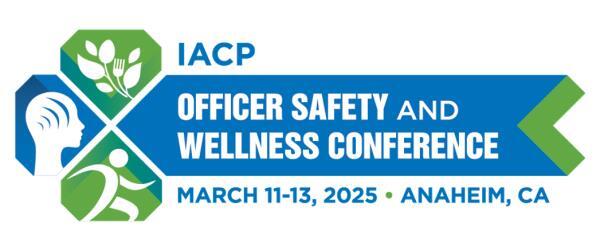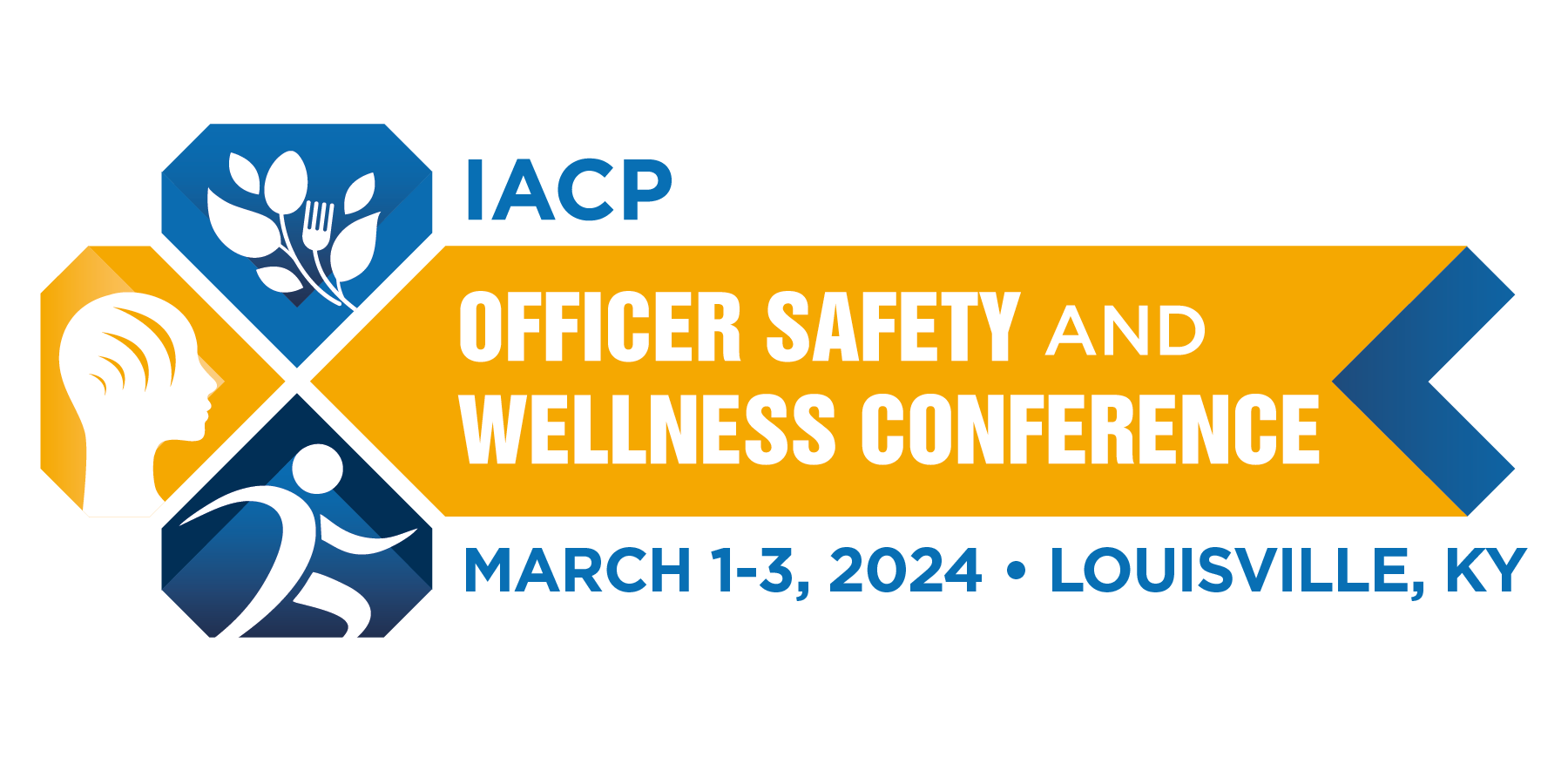
Catalog Advanced Search
-
Contains 14 Product(s)
Recorded sessions from the 2025 IACP Technology Conference are now available. Learn from top experts and thought leaders in law enforcement technology as they share insights, innovations, and real-world applications.

IACP 2025 Technology Conference: On-Demand Sessions
May 5–7 • Indianapolis, IN
Recorded sessions from the 2025 IACP Technology Conference are now available. Learn from top experts and thought leaders in law enforcement technology as they share insights, innovations, and real-world applications. Recorded sessions include:
- Opening General Assembly – Transforming Policing with AI: Efficiency, Accuracy, and Ethical Considerations for Report Writing
- Closing General Assembly – Spotlight on Cybersecurity: Trends for 2025
- AI-Powered Resilience: Transforming Officer Wellness Through Technology
- Unmanned Aviation Alters Game Plan for Hurricane Response – What Must Be Shared for Future Events
- Built by and for the Police: How AI-apps get yield from Terabytes of Data in Criminal Investigations
- CompStat 3.0: Crime Analysis and Response in the Age of Big Data and AI
- How Your Records Management Process Can Work for You – Leveraging RMS Functional Standards
- Mitigating Bias and Risk in AI Systems
- The End of the "Name Game"? Putting Biometric Capture Devices onto the Frontlines of Policing
- Oz Behind the Curtain: Unmasking the Assessment & Procurement of Police AI and Emerging Technology
- Paradoxical Effects of a Visual Warning of Body Worn Cameras on the Use of Police Force
- Smart Radio Technology in a Tactical Environment: All-Hazards approach to Situational Awareness
- Mass Violence Threats: The Actions that Speak Louder than Words
- The Early Stages of AI and BWC: Opportunities and Challenges
-
You must log in to register
- Non-member - $50
- Member - $50
- More Information
-
Contains 10 Product(s)
Improving officer safety and wellness enhances the health and effectiveness of officers, as well as the safety of the community. This conference is for law enforcement professionals to learn from experts in the field about resources and best practices when developing comprehensive officer safety and wellness strategies. Participants learn about building resilience, financial wellness, injury prevention, peer support programs, physical fitness, proper nutrition, sleep deprivation, stress, mindfulness, suicide prevention, and more.
Improving officer safety and wellness enhances the health and effectiveness of officers, as well as the safety of the community. This conference is for law enforcement professionals to learn from experts in the field about resources and best practices when developing comprehensive officer safety and wellness strategies. Participants learn about building resilience, financial wellness, injury prevention, peer support programs, physical fitness, proper nutrition, sleep deprivation, stress, mindfulness, suicide prevention, and more.
-
You must log in to register
- Non-member - $50
- Member - $50
- More Information
-
You must log in to register
-
Contains 3 Component(s)
Join us for a candid conversation with the IACP’s volunteer leaders where we will dive deep into discussions on what motivates them, critical issues in policing, and strategic decision-making. In this episode, the Vice President Treasurer Ron Sellon will share his unique perspective on the state of finances at the IACP, financial decision making, and what’s on the horizon for 2025 and beyond.
Join us for a candid conversation with the IACP’s volunteer leaders where we will dive deep into discussions on what motivates them, the world of association governance, policy making, financial stewardship, critical issues in policing, and strategic decision-making.
This series will feature multiple episodes, each highlighting different leaders and their unique insights.
-
You must log in to register
- Non-member - Free!
- Member - Free!
- More Information
-
You must log in to register
-
Contains 1 Component(s)
This webinar discusses how police departments can build trust with LGBTQI+ communities in their jurisdiction to increase reporting of domestic and sexual violence and build trust.
During this webinar, Sergeant Denise Jones with the Clark County (OH) Sheriff’s Office discusses how police departments can build trust with LGBTQI+ communities in their jurisdiction to increase the reporting of domestic and sexual violence.
After this webinar, participants will be better able to:
- Define gender identity and sexual orientation concepts and terminology
- Explain why learning about LGBTQI+ communities is critical for police to build trust with these communities
Presenters:
- Denise Jones, Sergeant, Clark County (OH) Sheriff’s Office
- Tina Dimachkieh, Project Manager, International Association of Chiefs of Police
For more information, contact IACP’s Stop The Violence at StopTheViolence@theiacp.org.
This webinar was produced by the International Association of Chiefs of Police under Cooperative Agreement 2019-V3-GX-K142 awarded by the Office for Victims of Crime, Office of Justice Programs, U.S. Department of Justice. The opinions, findings, conclusions, and recommendations expressed here are those of the author(s) and do not necessarily reflect the views of the Department of Justice.

Denise Jones
Sergeant
Clark County, Ohio, Sheriff's Office
Sergeant Jones has been in law enforcement for over 18 years. She came to the Clark County Sheriff’s Office in March of 2007. She began her career in law enforcement in January of 2000 with the Montgomery County Sheriff’s Office. Sergeant Jones has served in multiple divisions including corrections, court services, and road patrol. She was promoted in June of 2015 serving as a supervisor in both the Jail and Road Patrol divisions and now the Professional Standards Division.
She works primarily with intimate partner crime such as stalking, domestic violence, strangulation, and protection order violations along with conducting internal investigations, training, and orientation. Sergeant Jones has been engaged in changing her department’s culture, the department’s response to intimate partner crime, and establishing new policy and procedures with regards to issues within the minority populations of the community and intimate partner crime.
Sergeant Denise Jones served in the Ohio Army National Guard for six years after graduating from high school. She has continued her education throughout her tenure at the Clark County Sheriff’s Office, graduating with her Bachelor of Science degree in Criminal Justice Administration along with her Master of Science degree in Criminal Justice Administration and Master of Science degree in Emergency Services Management, and is working on a Bachelor of Science degree in Homeland Security from Columbia Southern University.
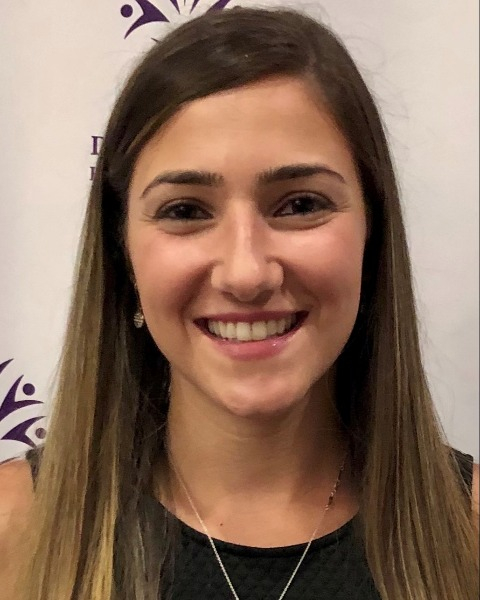
Tina Dimachkieh
Project Manager
International Association of Chiefs of Police
Tina Dimachkieh currently serves as the Project Manager for the Programs Team at the IACP. Ms. Dimachkieh manages programmatic activities for multiple multimillion dollar cooperative agreements with the U.S. Department of Justice’s Office for Victims of Crime (OVC) in the field of victim services focused on identifying and preventing gender bias through strengthening law enforcement response to crimes of domestic violence, sexual assault, strangulation, and stalking, and addressing and mitigating the negative effects of vicarious trauma. Ms. Dimachkieh works with subject matter experts and advisory board members to provide national comprehensive training and technical assistance (TTA) to law enforcement agencies and multidisciplinary partners composed of victim advocacy groups, criminal justice professionals, first responders, and medical professionals across the country.
-
You must log in to register
- Non-member - Free!
- Member - Free!
- *Further discounts may apply once you log in.
- More Information
-
Contains 89 Component(s)
This project seeks to establish or enhance victim services programs in criminal justice agencies in order to couple law enforcement-based services with community-based program partnerships to serve the broader needs and rights of all crime victims.
Target Audience: Law Enforcement-Based Victim Services Personnel, Victim Services Supervisors, and Sworn Leadership
Overall Objective: This project seeks to establish or enhance victim services programs in criminal justice agencies in order to couple law enforcement-based services with community-based program partnerships to serve the broader needs and rights of all crime victims.
Project Funding Provided by: The Office for Victims of Crime
Includes: A series of webinars discussing foundational elements of law enforcement-based victim services program development. Sample topics include but are not limited to: victims’ rights, program development, documentation standards, developing partnerships, and program sustainability.
Please direct any specific questions or comments to LEVproject@theiacp.org
For more information on Law Enforcement-Based Victim Services click here.
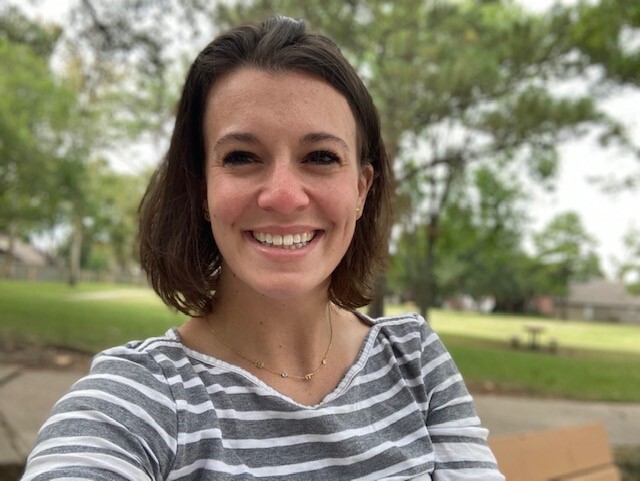
Emily Burton
Project Manager
IACP
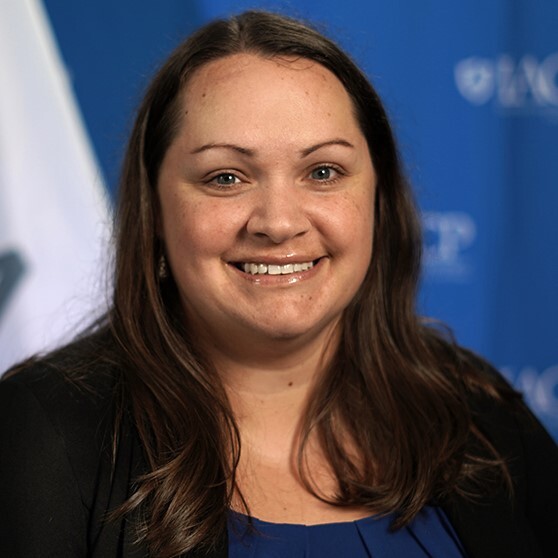
Heather Dooley
Project Manager
IACP
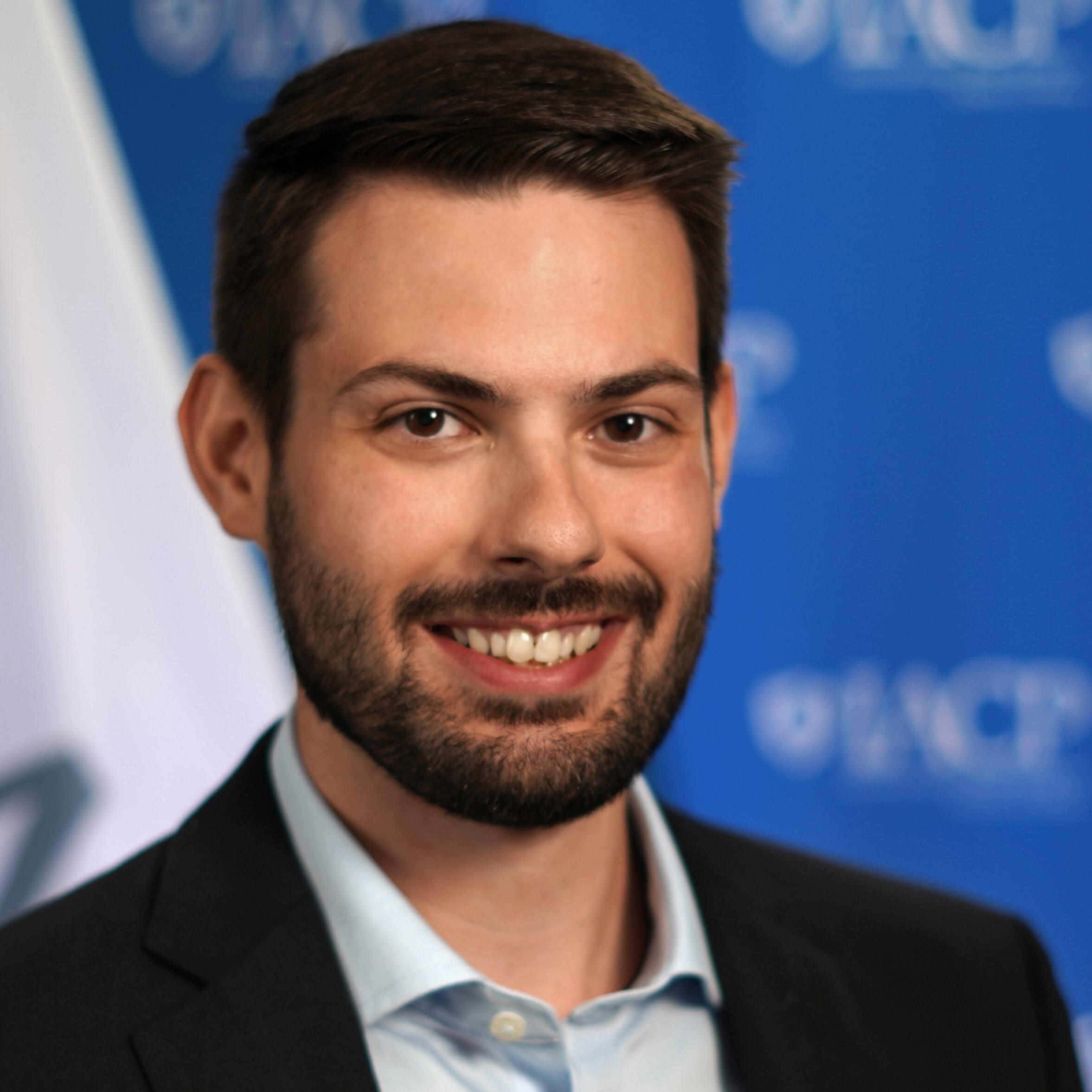
McKallen Leonard
Project Manager
IACP

Morgana Yellen
Project Coordinator
IACP
-
You must log in to register
- Non-member - Free!
- Member - Free!
- *Further discounts may apply once you log in.
- More Information
-
You must log in to register
-
Contains 1 Component(s)
During this OSW session, attendees learn about an evidence-proven, zero-cost, step-by-step process to do so. It begins with strategically setting measurable agency wellness goals that align with the needs and preferences of your internal and external key stakeholders and concludes with providing clear annual return on investment (ROI) reports to help justify ongoing program support, funding, and more.
The value of an officer's life can never be quantified. Measuring the effectiveness and positive impact of wellness programs is critical for sustaining, enhancing, and expanding programs. During this session, attendees will learn about an evidence-proven, zero-cost, step-by-step process to do so. It begins with strategically setting measurable agency wellness goals that align with the needs and preferences of your internal and external key stakeholders and concludes with providing clear annual return on investment (ROI) reports to help justify ongoing program support, funding, and more.
-
You must log in to register
- Non-member - Free!
- Member - Free!
- More Information
-
You must log in to register
-
Contains 56 Product(s)
The 2024 Officer Safety and Wellness Symposium is for public safety professionals to learn from experts in the field about resources and best practices when developing comprehensive officer safety and wellness strategies. Virtual registration for the 2024 OSW Symposium will give you access to three live-streamed general sessions (March 1-3, 2024) and dozens of pre-recorded workshops only available through IACPlearn. All workshops listed in the educational program will be available virtually, unless indicated otherwise, and will be accessible on-demand to view at your leisure. Virtual attendees will learn about building resilience, financial wellness, injury prevention, peer support programs, physical fitness, proper nutrition, sleep deprivation, stress, mindfulness, suicide prevention, and more.
The Officer Safety and Wellness Virtual Conference is for public safety professionals to learn from experts in the field about resources and best practices when developing comprehensive officer safety and wellness strategies. Virtual registration for the 2024 Officer Safety and Wellness will give you access to three live-streamed general sessions (March 1-3, 2024) and dozens of pre-recorded workshops only available through IACPlearn. All workshops listed in the educational program will be available virtually, unless indicated otherwise, and will be accessible on-demand to view at your leisure. Virtual attendees will learn about building resilience, financial wellness, injury prevention, peer support programs, physical fitness, proper nutrition, sleep deprivation, stress, mindfulness, suicide prevention, and more.
If you encounter any issues, please contact us at:
learn@theiacp.org
800-THE-IACP
-
You must log in to register
- Non-member - $485
- Member - $230
- More Information
-
You must log in to register
-
Contains 21 Component(s), Includes Credits
A training series geared towards addressing vicarious trauma response across both the Vicarious Trauma Response Initiative (VTRI) project sites and any agency or organization interested in addressing vicarious trauma.
A monthly training series geared towards addressing vicarious trauma response across VTRI Community Implementation Site partners.
Target Audience: Community Implementation Sites
Overall Objective: A training series hosted by the Vicarious Trauma Response Initiative for all partner organizations across the 12 Community Implementation Sites focusing on mitigating the negative effects of work-related trauma exposure and building partnerships and collaborations to address vicarious trauma response on an organizational level.
Project Funding Provided By: The Office for Victims of Crime, Office of Justice Programs, U.S. Department of Justice
Includes: Monthly webinars hosted by the Vicarious Trauma Response Initiative

Meg Garvin
Executive Director & Clinical Professor of Law, MA, JD
National Crime Victim Law Institute
Meg Garvin is the Executive Director of the National Crime Victim Law Institute (NCVLI) and a Clinical Professor of Law at Lewis & Clark Law School. Ms. Garvin is recognized as a leading expert on victims’ rights. She has testified before Congress, state legislatures and the Judicial Proceedings Panel on Sexual Assault in the Military. In her expert capacity she has served on the Defense Advisory Committee on Investigation, Prosecution and Defense of Sexual Assault in the Armed Forces, the Victims Advisory Group of the United States Sentencing Commission, and the Victim Services Subcommittee, of the Response Systems to Adult Sexual Assault Crime Panel of the United States Department of Defense, as co-chair of the American Bar Association’s Criminal Justice Section Victims Committee, co-chair of the Oregon Attorney General’s Crime Victims’ Rights Task Force and as a member of the Legislative & Public Policy Committee of the Oregon Attorney General’s Sexual Assault Task Force. She has received numerous awards in recognition of her work, including in 2015 the John W. Gillis Leadership Award from National Parents of Murdered Children; in 2020, the American Bar Association Criminal Justice Section’s Frank Carrington Crime Victim Attorney Award, and in 2021, the Hardy Myers Victim Advocacy Award from the Oregon Crime Victims Law Center. Prior to joining NCVLI, Ms. Garvin practiced law in Minneapolis, Minnesota and clerked for the Eighth Circuit Court of Appeals. Pronouns: she/her/hers.

Chris Newlin
Executive Director, MS LPC
National Children's Advocacy Center
Chris Newlin is the executive director of the National Children’s Advocacy Center (NCAC) in Huntsville, AL, where he is responsible for providing leadership and management of the agency, as well as participating in national and international training and leadership activities regarding the protection of children. The NCAC was the first Children’s Advocacy Center (CAC) in the world and provides child abuse prevention and intervention services in Huntsville/Madison County; and also houses the NCAC Training Center, the Southern Regional Children’s Advocacy Center, the NCAC Virtual Training Center, and the Child Abuse Library Online (CALiO). The NCAC is a past multi-year winner of the Better Business Bureau’s Torch Award for Workplace Ethics; 2012 Huntsville/Madison County Chamber of Commerce Non-Profit of the Year; 2016 Federal Bureau of Investigation Director’s Community Leadership Award recipient; (multi-year finalist), winner in 2017 and 2019 of the Huntsville/Madison County Chamber of Commerce Best Places to Work; and a Private Sector Member of the Virtual Global Taskforce. Chris has more than 24 years of experience working in CACs as a forensic interviewer, victim advocate, clinical director, and executive director. He has provided training in more than 30 countries at numerous international conferences and continues to provide technical assistance on a regular basis to professionals working to develop multidisciplinary teams (MDTs) and CACs throughout the world. Chris received his master’s degree in school psychology from the University of Central Arkansas, is a licensed professional counselor, and has completed coursework at the Harvard University Business School Executive Education Program.

Paula Gomez Stordy
Senior Director of National Training and Technical Assistance
Esperanza United
Paula Gomez Stordy has more than 25 years of experience working in the field of gender-based violence, of which 17 years were in non-profit management. She is the Senior Director of National Training and Technical Assistance for Esperanza United: National Latin@ Network for Healthy Families and Communities, a national resource center with a focus on providing training, research, and policy advocacy to prevent and end domestic violence and sexual assault. Ms. Gomez Stordy directs national training and technical assistance overseeing federal grants, programming, and supervision of staff to enhance culturally responsive approaches and capacity to both mainstream and culturally specific organizations across the country.
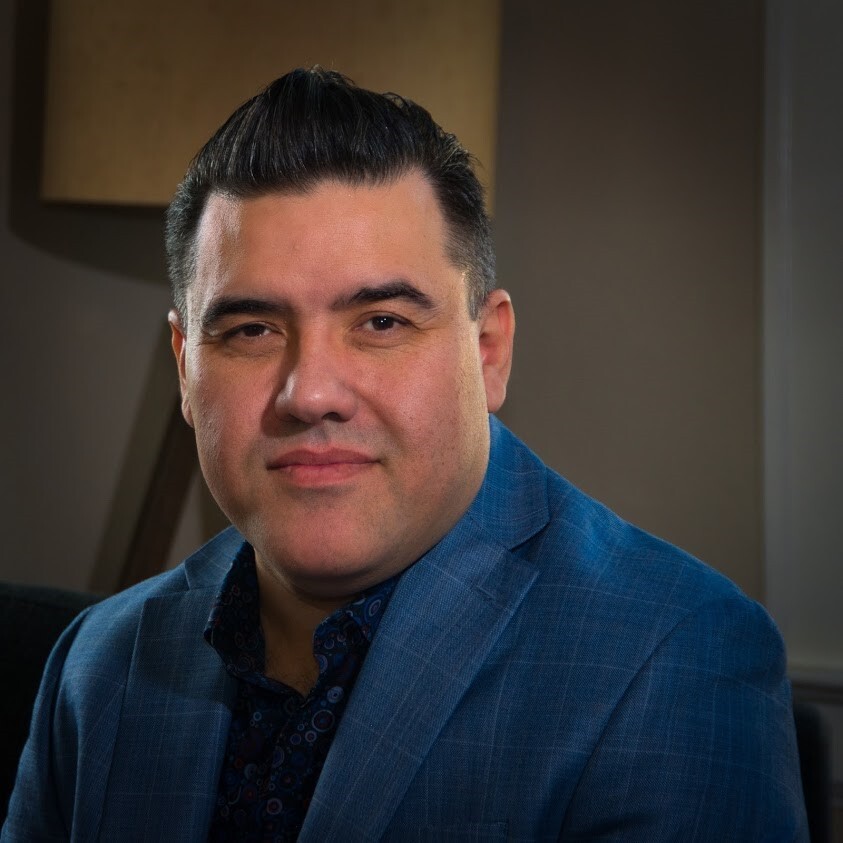
Leo Martinez
Project Manager
Esperanza United
Leo Martinez is a Project Manager with Esperanza United, formerly Casa de Esperanza - National Latin@ Network. With Esperanza United he currently works providing Language Access and Cultural Responsiveness training as part of the national resource center on domestic violence in the Latino community; he is a Training and Technical Assistance lead with the Vicarious Trauma Response Initiative, a national initiative funded by the Office for Victims of Crime (OVC) and led by the International Association of Chiefs of Police (IACP); he informs the Intimate Partner Homicide project focused on Latino victims and funded by the Office on Violence against Women (OVW). He also collaborates on the Enhancing Access Peer to Peer project focused on language access, funded also by the Office for Victims of Crime (OVC).
-
You must log in to register
- Non-member - Free!
- Member - Free!
- More Information
-
You must log in to register
-
Contains 1 Component(s)
Human trafficking is an international issue that places unprecedented demands on law enforcement and involves many challenges for an effective criminal justice response. Hear from a diverse panel of police leaders from across the United States on what human trafficking looks like in their communities and how they have evolved their strategies to address this complicated crime.
Human trafficking is an international issue that places unprecedented demands on law enforcement and involves many challenges for an effective criminal justice response. Hear from a diverse panel of police leaders from across the United States on what human trafficking looks like in their communities and how they have evolved their strategies to address this complicated crime. Panelists highlight their experiences advancing their human trafficking policies, procedures, and protocols over the last few years. IACP and the Office for Victims of Crime share a toolkit of resources for law enforcement agencies to enhance capacity to identify and assist victims of human trafficking and to hold offenders accountable.
This workshop was recorded during IACP’s 2024 Annual Conference and Exposition in Boston, Massachusetts.
Following this workshop, registrants will better be able to:
• Learn how law enforcement agencies across the United States have enhanced their anti-human trafficking efforts.
• Discuss different strategies used by law enforcement agencies to address human trafficking in their communities.
• Understand what resources are available and how to access them.
Panelists:
• Natasha Haunsperger, Officer/Community Engagement Lead, Portland (Oregon) Police Bureau
• Alexander Jones, Chief, Arlington (Texas) Police Department
• Shade McMillian, Sergeant, Leon County (Florida) Sheriff’s Office
• Robin Hassler Thompson, Executive Director, Survive and Thrive Advocacy Center
• Alissa Huntoon, Senior Policy Advisor, U.S. Department of Justice, Office for Victims of Crime
• Hilary Burgess, Senior Project Manager, International Association of Chiefs of Police (Moderator)
For more information, contact IACP’s Anti-Human Trafficking Team at humantrafficking@theiacp.org.
This workshop was produced by the International Association of Chiefs of Police under Cooperative Agreements #15POVC-21-GK-03262-HT, awarded by the Office for Victims of Crime, Office of Justice Programs, U.S. Department of Justice. The opinions, findings, and conclusions or recommendations expressed in this workshop are those of the contributors and do not necessarily represent the official position or policies of the U.S. Department of Justice.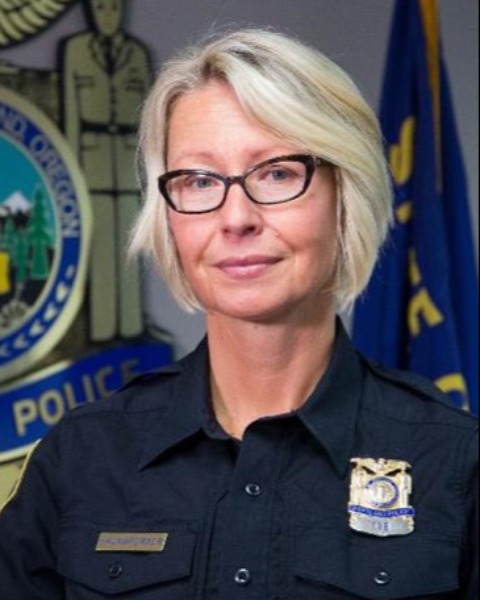
Natasha Haunsperger
Police Office/Community Engagement Lead
Portland (Oregon) Police Bureau
Natasha Haunsperger worked as an interpreter with the United Nations International Police Task Force (IPTF), charged with reintegrating war zones back into Croatia proper. Ms. Haunsperger joined the Portland Police Bureau (PPB) in 2006, shortly after she had immigrated to Oregon from Croatia. Her previous experiences with war refugees and conflict resolution ultimately led her to proactively focus and engage with the large multicultural/ethnic communities in the Portland area. During her assignment with the PPB Criminal Intelligence Unit, Officer Haunsperger focused on both intelligence and criminal investigations involving foreign-born labor trafficking subjects in the state of Oregon. She also co-produced a documentary film on foreign-born labor trafficking, "Reclaiming Their Lives," and is actively working on raising public awareness about trafficking trends in the Pacific Northwest. Officer Haunsperger is committed to developing a training curriculum for first responders and community-based stakeholders, focusing on early detection and identification of possible labor trafficking activities and victims’ identification and rescue.

Alexander Jones
Chief of Police
Arlington (Texas) Police Department
Alexander Jones serves as the Chief of Police for the City of Arlington, Texas. He leads the department in the 48th largest city in the country with almost 900 sworn officers and professional staff members with an annual budget of $109 million dollars. Chief Jones began his policing career with the Baltimore County (Maryland) Police Department in 1995 and quickly rose through the ranks to become the department's second highest-ranking officer. He previously served as the Colonel of Operations overseeing ten police precincts, patrol operations, Safe School Division, Youth and Community Service Section, and the Support Operations Division. Chief Jones also served as the Bureau Chief of Community Relations, which included the Community Resource and Wellness Section and the Youth and Community Service Section. The focus of the bureau was on community relations and building trust with the communities of Baltimore County. He was instrumental in establishing many successful youth programs.
Chief Jones obtained a Master of Science Degree in Criminal Justice from Ashworth College and received an undergraduate degree in Business Administration from the University of Hartford.
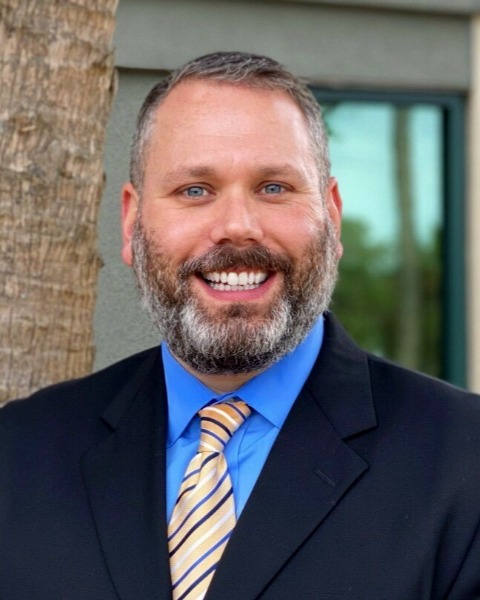
Shade McMillian
Sergeant
Leon County (Florida) Sheriff's Office
Sergeant Shade McMillian, a proud Florida native, has dedicated over 18 years to law enforcement, serving with distinction at the Leon County Sheriff’s Office in Tallahassee since 2005. Rising through the ranks, he became a Sergeant in 2021, having held critical positions such as Field Training Officer, School Resource Deputy, Violent Crimes Detective, Public Information Officer, and Sergeant in Youth and Young Adult Services, Violent Crimes Unit, and Special Investigations/Human Trafficking Unit.
In 2023, Sergeant McMillian played a pivotal role in establishing the Capital City Human Trafficking Task Force (CCHTTF), a collaborative effort involving federal, state, and local law enforcement aimed at combating human trafficking in Florida, with a focus on the state capitol, Tallahassee.
Sergeant McMillian has been a dedicated member of the Florida Gang Investigators Association, serving as North Central Florida Regional Director on the Board of Directors since 2013. An expert in his field, he regularly trains law enforcement officers and school administrators statewide on critical topics including human trafficking, school safety, and gang awareness.
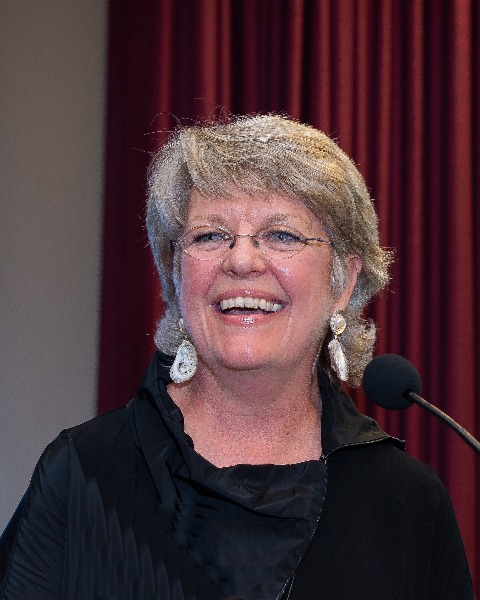
Robin Hassler Thompson
Executive Director
Survive and Thrive Advocacy Center
Robin Hassler Thompson, M.A., J.D., is the Executive Director of the Survive and Thrive Advocacy Center (STAC), an anti-trafficking non-profit she helped to co-found in 2015. She is an active member of the Big Bend Coalition Against Human Trafficking. In 2001 she traveled to Bangladesh on a U.S. State Department mission, which included a visit to a trafficking rescue shelter in Dhaka. This so inspired her that since then, she has directed and collaborated on many anti-trafficking projects, produced and conducted anti-human trafficking training programs, and authored numerous publications and curricula on both sex and labor trafficking. Robin has served on and held leadership positions on local, state, and national boards and committees including the Florida Supreme Court-appointed Commission on Access to Civil Justice and the Tallahassee/Leon County Commission on the Status of Women and Girls. Robin led Florida’s first Task Force on Domestic and Sexual Violence and served on the National Advisory Council on Violence Against Women. She holds both a J.D. and a master's degree from Florida State University and a B.A. from American University in Washington, D.C.

Alissa M. Huntoon
Senior Policy Advisor & Law Enforcement Program Coordinator
United States Department of Justice Office for Victims of Crime
As a Senior Policy Advisor at the Office for Victims of Crime, Department of Justice (DOJ), Alissa develops and implements national criminal justice system policy initiatives. Her current portfolio includes oversight of the Enhanced Collaborative Model (ECM) Task Force to Combat Human Trafficking programming and related training and technical assistance to ECMs, law enforcement, prosecution and victim service provider partners. Alissa worked previously at the Bureau of Justice Assistance (DOJ) supporting a range of law enforcement and community-based crime reduction initiatives. Prior to joining DOJ, Alissa worked for the International Association of Chiefs of Police (IACP) where she oversaw grant programs that advance policy and practice within the law enforcement profession. Before joining the IACP, Alissa worked for Circle Solutions, Inc., providing research and evaluation services for the Office of Community Oriented Policing Services (COPS) supported Cops in Schools program. Ms. Huntoon earned her B.A. in Sociology with an emphasis in criminal justice from the University of Minnesota – Twin Cities and her Master’s of Public Policy from American University.

Hilary Burgess
Senior Project Manager
IACP
Hilary Burgess joined the International Association of Chiefs of Police in 2018. She has served as a Senior Project Manager since 2022 for multiple Department of Justice (DOJ) Office for Victims of Crime anti-human trafficking initiatives. Hilary first gained valuable experience working for four years on the DOJ COPS Office-funded Collaborative Reform Initiative Technical Assistance Center (CRI-TAC) program where she managed technical assistance delivery and resource development for the policing field. She previously worked for the National Sheriffs' Association for over 13 years where she served in multiple capacities, including Director of Professional Development. Hilary is a skilled project manager, earning a Project Management Professional (PMP) certification. She holds a Bachelor of Arts in Communication Studies from Westmont College in Santa Barbara, California.
-
You must log in to register
- Non-member - Free!
- Member - Free!
- More Information
-
You must log in to register
-
Contains 1 Component(s)
This webinar addresses the impacts of tragedy and introduces a transformative process called post-traumatic growth. Mental health and policing professionals share their personal stories of tragedy and growth and provide practical strategies of how individuals can work towards post-traumatic growth in their own lives.
Police officers regularly put themselves on the line to protect and serve their community. Often, this means they are exposed to the tragedy, trauma, and challenging life circumstances of others. Police officers respond to incidents such as mass shootings, vehicle crashes, suicide, domestic violence, natural disasters, child abuse, neglect, and fatalities. This exposure causes physical, emotional, and psychological impacts for these officers, and at times, the ripple effects impact their families.
This webinar addresses the impacts of tragedy, and a transformative process called post-traumatic growth, which can be experienced as a result of tragedy. Mental health professionals and police leaders share the elements and benefits of post-traumatic growth. Practical strategies and interventions that support individuals in their journey towards post-traumatic growth are also explored. Lastly, policing personnel share their professional and personal experiences with post-traumatic growth in efforts to encourage others along the journey.
After this webinar, participants will be better able to:
- Define post-traumatic growth
- Explain the journey to post-traumatic growth
- Identify strategies to cultivate post-traumatic growth
Presenters:
- Tabitha Hays, Officer, Baltimore County (MD) Police Department
- Michael Kehoe, Chief of Police (Ret.), Newtown (CT) Police Department
- Elise Spina-Taylor, Lieutenant and Licensed Clinical Psychologist, Miami Beach (FL) Police Department
- Sara Dziejma, Policy Advisor, Bureau of Justice Assistance
- Sabrina Fernandez, Program Manager, International Association of Chiefs of Police, Moderator
For more information, contact IACP’s Officer Safety and Wellness Team at OSW@theIACP.org.
This project was supported, in whole or in part, by cooperative agreement number 15PBJA-22-GK-01406-VALO awarded by the U.S. Department of Justice, Office of Justice Programs, Bureau of Justice Assistance. The opinions contained herein are those of the author(s) or contributor(s) and do not necessarily represent the official position or policies of the U.S. Department of Justice. References to specific individuals, agencies, companies, products, or services should not be considered an endorsement by the author(s) or the U.S. Department of Justice. Rather, the references are illustrations to supplement discussion of the issues.

Tabitha Hays
Officer
Baltimore County, Maryland, Police Department
Officer Tabitha Hays has been a member of the Baltimore County, Maryland Police Department since 2005. She is currently assigned to the Training Section where she instructs in multiple disciplines. She is a firearm, active assailant, tactical medicine, and first aid instructor along with numerous other instructor certifications. She has been named Officer of the Year twice and Officer of the Month nine times. In 2023, she was awarded Maryland Police and Corrections Training Commission Instructor of the Year for her agency. On May 21, 2018, Officer Hays was involved in a critical incident that resulted in the line of duty death of her friend and co-worker Amy Caprio. Less than one year later, in 2019, Officer Hays herself was shot and critically injured in the line of duty. Officer Hays endured numerous surgeries and months of physical therapy to return to duty. After over a year of treatment, she was able to return to full duty. For her actions in 2019, she was awarded the Mid-Atlantic Association of Women in Law Enforcement Valor Award as well as a Purple Heart. As a part of the training staff, she is using her experience and knowledge from those two significant events to help better equip, train, and prepare her fellow officers and recruits for response to critical incidents. She also joined her agency’s Peer Support team in an effort to assist fellow officers dealing with critical incidents, stress, and trauma.

Michael Kehoe
Chief of Police (Ret.)
Newtown, Connecticut, Police Department
Michael Kehoe retired as Chief of Police from the Newtown, Connecticut, Police Department in 2016. He is best known and notable for managing the aftermath of the 2012 Sandy Hook Elementary School shooting. Chief Kehoe was hired by the Newtown Police Department in 1978 after graduating from Western Connecticut State University with a B.S. in Criminal Justice Administration. Chief Kehoe was promoted through the ranks of the Newtown Police Department eventually being promoted to Chief of Police in 2001. In 1985, Chief Kehoe received a Master of Business Administration from Rensselaer Polytechnic Institute. Chief Kehoe has presented nationally on many topics including Crisis Leadership; Lessons Learned from the Sandy Hook Elementary School Shooting; Officer Wellness and Safety; Responding to Active Shooters and Mass Casualties; Safety and Security within School Settings; and Police Leadership. Chief Kehoe has participated in various national roundtable discussions and delivered testimony on Gun Violence and School Safety, 1st Responder Wellness and Safety, Emergency Protocols at Critical Incidents for State and Local Police, and School Related Threat Based Penalties. Chief Kehoe is currently consulting with the IACP as a subject matter expert in the Officer Safety and Wellness (OSW) initiatives and the Mass Violence Alliance Initiative (MVAI).

Elise Spina-Taylor
Lieutenant/ Licensed Clinical Psychologist
Miami Beach, Florida, Police Department
Elise Spina-Taylor is currently employed with the City of Miami Beach Police Department. She has worked for the department for over 28 years, currently at the rank of Lieutenant assigned as the Commander of the Training Unit and Department Wellness Program. Elise was an investigator for over 18 years of her career assigned to Burglary/Property Crimes, Major Crimes, Internal Affairs (IA), and Commander of the Street Crimes Unit. While working full-time for the police department, Elise obtained her Doctorate degree in Clinical Psychology. Elise has developed and conducted training classes for first responders as well as in the corporate sector and educational institutions. Elise continues to utilize her education, clinical, and law enforcement experience as the commander and psychologist consultant of the Hostage Negotiation Team (HNT), the Peer Support Team, and the Miami Beach Wellness Program called S.T.E.P.P.

Sara Dziejma
Policy Advisor
Bureau of Justice Assistance
Sara Dziejma serves as a Policy Advisor at the Bureau of Justice Assistance (BJA) supporting the VALOR Officer Safety and Wellness Initiative and Hate Crimes Team. Prior to joining BJA in March 2023, Sara served as the Task Lead at Booz Allen Hamilton supporting the Department of Homeland Security’s Cybersecurity and Infrastructure Security Agency (CISA) Emergency Communications Division. Specifically, Sara focused on the implementation of the National Emergency Communications Plan and development of the SAFECOM Nationwide Survey, both aimed at enhancing emergency communications operability, interoperability, and continuity in all situations. Previously, Sara spent over 12 years at the International Association of Chiefs of Police, most recently as the manager of the Policy Center which develops guidance and recommendations for law enforcement agencies on over 100 different topics. Sara received her Master of Forensic Sciences from George Washington University and her Bachelor of Arts from the University of South Carolina.
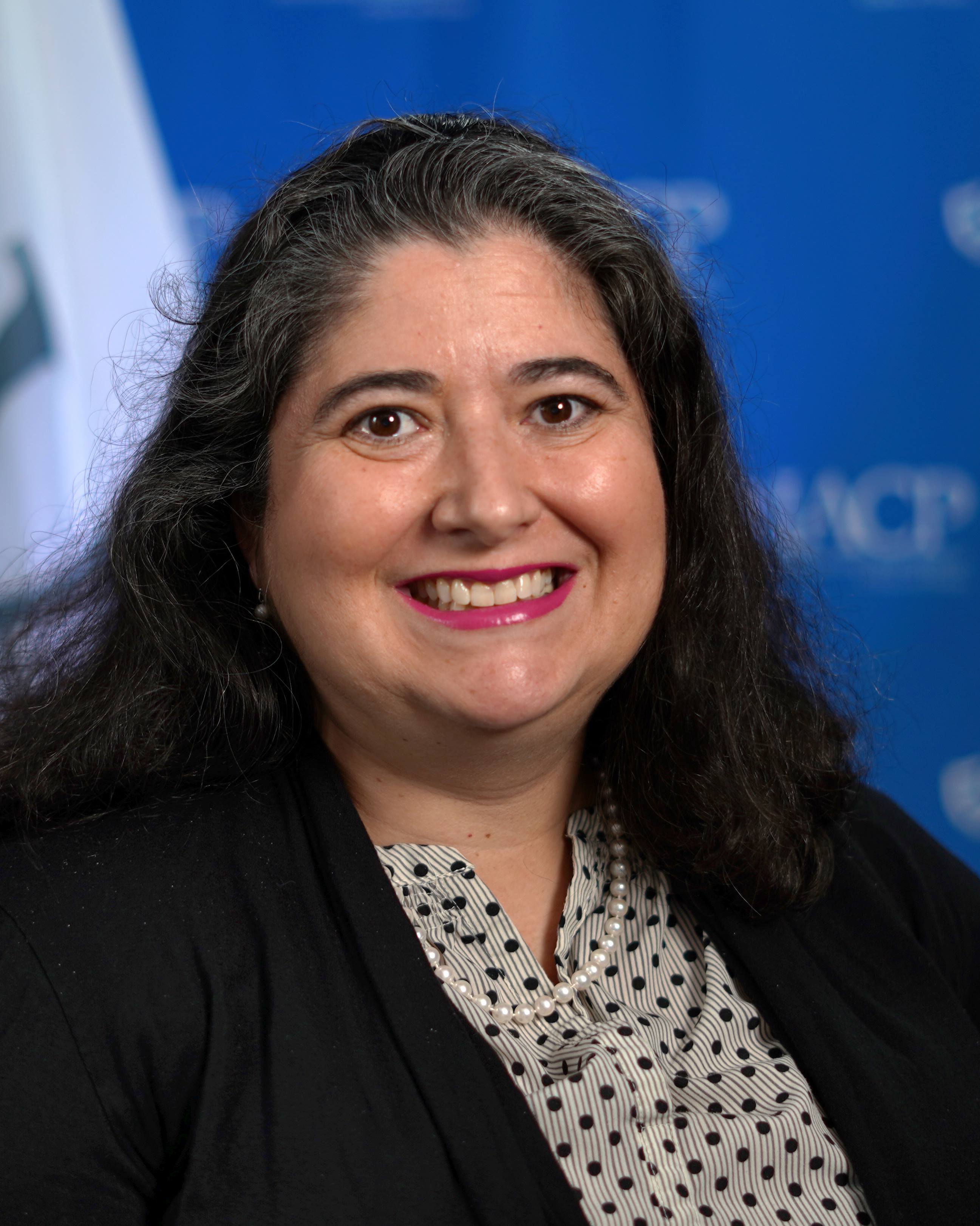
Sabrina Fernandez
Program Manager
IACP
Sabrina Fernandez is a Program Manager at the International Association of Chiefs of Police (IACP), overseeing multiple law enforcement training and technical assistance initiatives in topic areas such as officer safety and wellness, recruitment and retention, anti-human trafficking, and innovative online training. Sabrina has been with the IACP since 2010, addressing policy and operational challenges facing law enforcement and developing tools and resources to assist law enforcement in investigating and prosecuting criminal activity, preventing and responding to victimization, and increasing community safety. Prior to the IACP, Sabrina worked at the University of Tennessee Law Enforcement Innovation Center and Tennessee Regional Community Policing Institute, the University of Tennessee's Social Work Office of Research and Public Service, and the Baltimore Office of Homeless Services, after spending four years at the beginning of her career as a social worker and social policy advocate. Sabrina has a Master of Arts in Public Policy from The Johns Hopkins University and a Bachelor of Arts in Sociology, English and French from Drury University. She can be reached at fernandez@theiacp.org.
-
You must log in to register
- Non-member - Free!
- Member - Free!
- More Information
